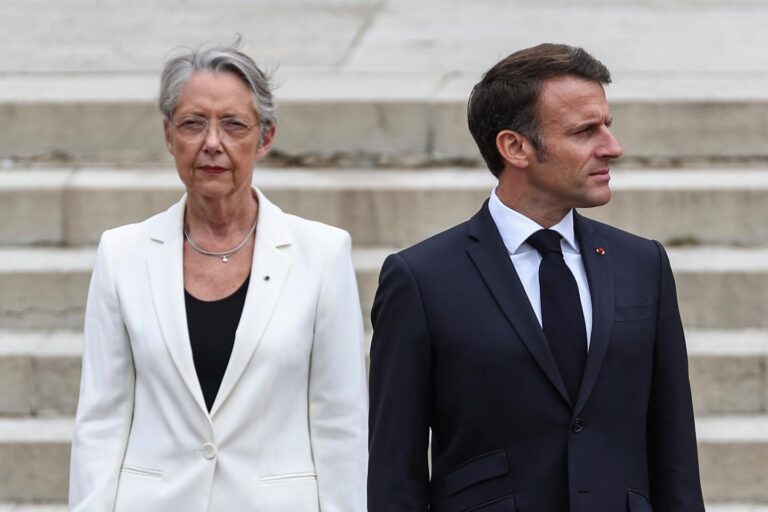In a surprising policy reversal, France’s newly appointed Prime Minister has abandoned plans initiated by their predecessor to reduce the number of public holidays. The decision marks a departure from earlier efforts aimed at boosting economic productivity by trimming two of the country’s traditionally observed holidays. This move has sparked debate among political analysts and labor groups, reflecting ongoing tensions between economic priorities and public sentiment in France.
New French Prime Minister Reverses Public Holiday Reduction Plan
In a significant policy reversal, France’s new Prime Minister has officially abandoned the controversial proposal to reduce the number of public holidays. This move signals a clear shift from the previous administration’s efforts to boost economic productivity by cutting back on paid days off. The plan faced widespread criticism from labor unions, employees across various sectors, and political opponents, who argued that public holidays play a crucial role in maintaining workers’ well-being and cultural tradition.
Key points of the decision include:
- Retention of all 11 official public holidays celebrated nationwide
- Commitment to dialogue with unions and civic groups on future labor reforms
- Focus on balancing economic growth with social stability and worker satisfaction
The reversal not only restores public confidence but also underscores the government’s priority to preserve national heritage while seeking sustainable economic strategies.
Implications for Workers and Economic Stakeholders
The retraction by the new French Prime Minister on reducing public holidays signals significant relief for workers and economic stakeholders alike. Maintaining the existing number of public holidays preserves essential downtime that many employees rely on for rest, family time, and personal pursuits. For labor unions and workforce representatives, this move reinforces a commitment to work-life balance, potentially easing tensions that had escalated during proposals for cutbacks.
From an economic perspective, businesses can anticipate stable consumer behavior during these holidays, as holiday-associated spending often supports local economies, especially in retail and hospitality sectors. However, some employers had viewed the original plan as an opportunity to increase annual productivity. The decision to retain all holidays means continued adjustments in operational planning, but it may also prevent workforce dissatisfaction. Key implications include:
- Positive morale: Workers feel valued, reducing the risk of strikes or protests.
- Steady consumer flow: Traditional holiday spending patterns remain unchanged.
- Operational costs: Potential for ongoing challenges in scheduling and output optimization.
| Stakeholder | Expected Impact | Key Concern |
|---|---|---|
| Workers | Improved work-life balance | Job security and fair working hours |
| Employers | Maintained holiday-related costs | Productivity management |
| Economy | Stable consumption trends | Long-term growth considerations |
Political Reactions to the Policy U-Turn
The sudden reversal by the new French Prime Minister sparked a whirlwind of reactions across the political landscape. Opposition parties swiftly criticized the decision, accusing the government of lacking a coherent vision for labor reforms. Some members of parliament from conservative factions voiced their frustration, arguing that the policy u-turn could undermine efforts to boost economic productivity. Conversely, left-wing leaders welcomed the move as a victory for workers’ rights and a demonstration of responsive governance.
- Socialist Party: Hailed the U-turn as a positive step towards preserving France’s rich cultural heritage and workers’ wellbeing.
- Les Républicains: Expressed concerns over the impact on business competitiveness but acknowledged the PM’s attentiveness to public sentiment.
- Far-Right Groups: Criticized the policy shift as indecisive and emblematic of broader governmental instability.
| Aspect | Supporters | Critics |
|---|---|---|
| Economic Impact | Moderate concern over growth | Fear of productivity loss |
| Public Opinion | Strong public support | Mixed reactions from business elites |
| Political Strategy | Seen as a tactical retreat | Accused of indecision |
Recommendations for Balancing Labor Rights and Economic Growth
Striking a balance between safeguarding labor rights and stimulating economic growth demands nuanced policy approaches that respect workers’ well-being while promoting productivity. Policymakers should consider flexible work arrangements and targeted skill development programs to enhance workforce efficiency without eroding employees’ protections. Prioritizing dialogue between government, unions, and businesses can foster collaborative solutions that uphold public morale and maintain economic momentum.
Informed decision-making can benefit from clear metrics that evaluate the impact of labor reforms on both economic indicators and social equity. The table below outlines strategic measures that harmonize labor interests and economic objectives, demonstrating that thoughtful reforms can drive sustainable growth without sacrificing the rights of the working population.
| Policy Measure | Labor Rights Impact | Economic Benefit |
|---|---|---|
| Flexible Work Hours | Improves work-life balance | Increases productivity and reduces absenteeism |
| Skill Enhancement Programs | Empowers workers with new competencies | Boosts innovation and competitiveness |
| Collective Bargaining Support | Ensures fair wage negotiations | Promotes industrial peace and stability |
| Preservation of Public Holidays | Respects cultural and social rights | Maintains employee satisfaction and loyalty |
The Way Forward
As the new French Prime Minister steps back from the controversial proposal to reduce public holidays, the decision signals a cautious approach to labor and social policies amid ongoing public sensitivity. While the government seeks to balance economic concerns with citizens’ expectations, the proposal’s withdrawal highlights the challenges facing policymakers in addressing France’s complex work-life dynamics. Moving forward, the administration’s ability to navigate these issues will be closely watched by both the public and economic stakeholders.




